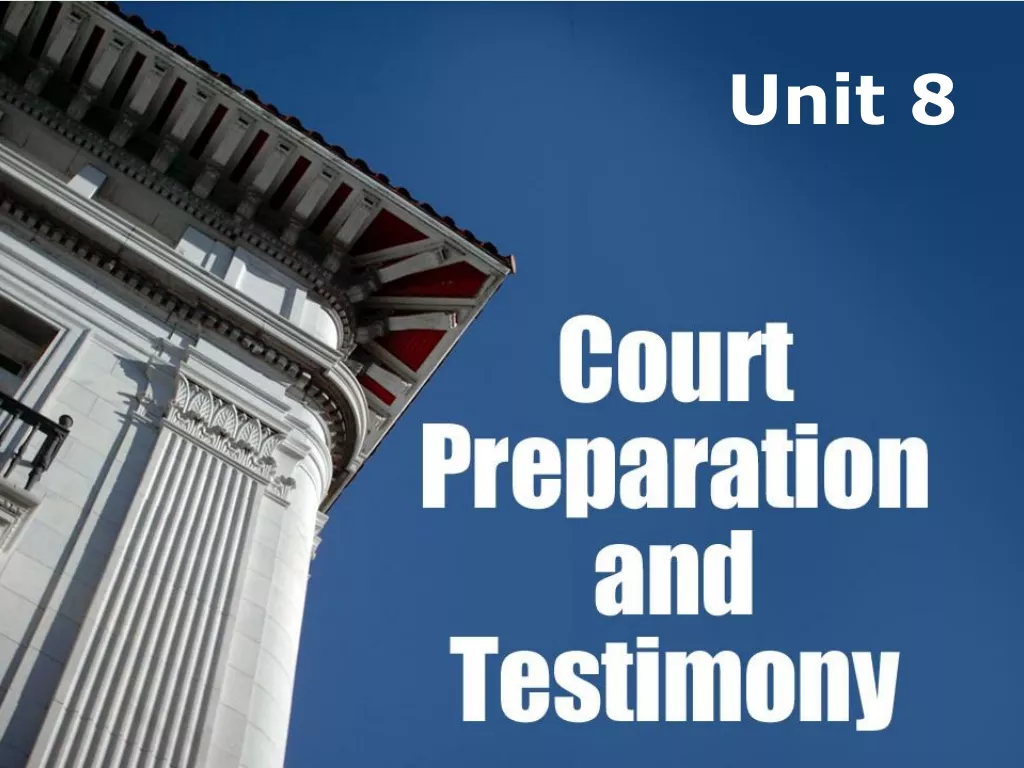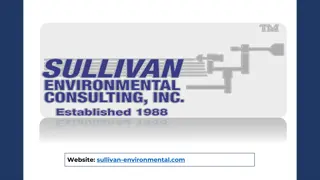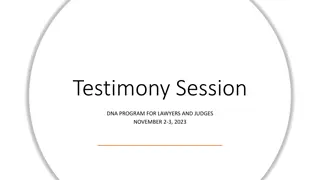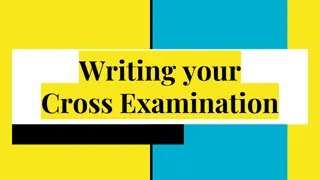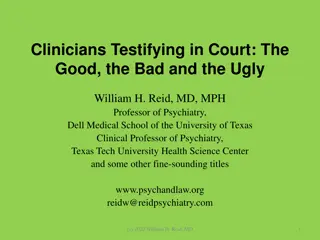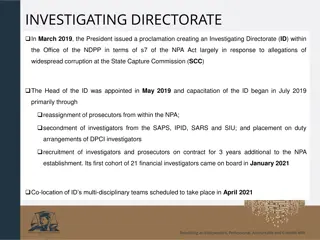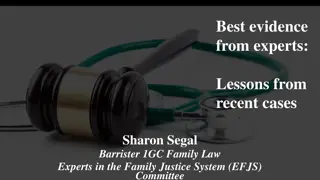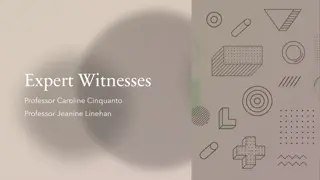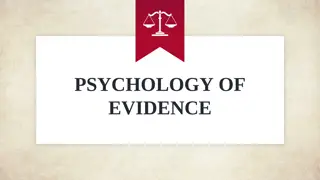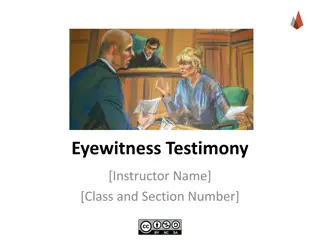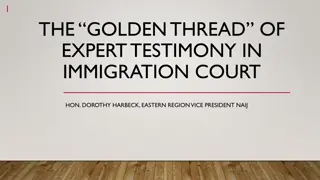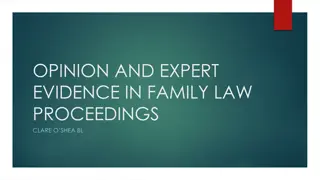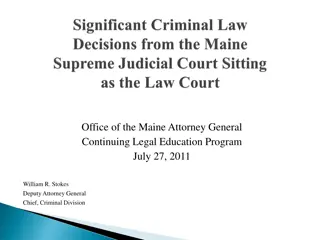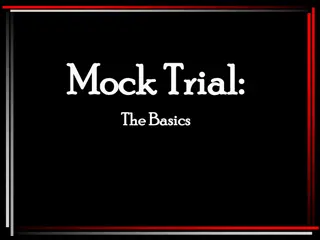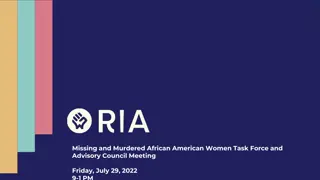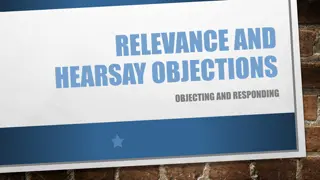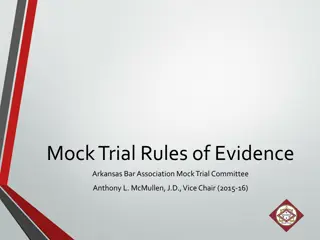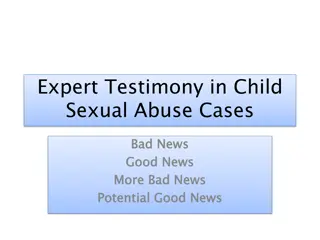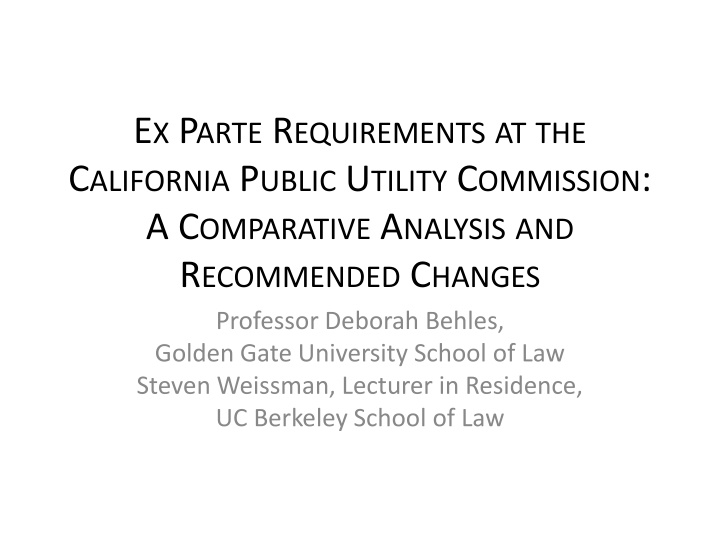
Analysis of Ex Parte Requirements at California Public Utility Commission
Explore a comparative analysis of ex parte requirements at the California Public Utility Commission, uncovering inconsistencies and recommending changes for a more just and transparent process.
Download Presentation

Please find below an Image/Link to download the presentation.
The content on the website is provided AS IS for your information and personal use only. It may not be sold, licensed, or shared on other websites without obtaining consent from the author. If you encounter any issues during the download, it is possible that the publisher has removed the file from their server.
You are allowed to download the files provided on this website for personal or commercial use, subject to the condition that they are used lawfully. All files are the property of their respective owners.
The content on the website is provided AS IS for your information and personal use only. It may not be sold, licensed, or shared on other websites without obtaining consent from the author.
E N D
Presentation Transcript
EX PARTE REQUIREMENTS AT THE CALIFORNIA PUBLIC UTILITY COMMISSION: A COMPARATIVE ANALYSIS AND RECOMMENDED CHANGES Professor Deborah Behles, Golden Gate University School of Law Steven Weissman, Lecturer in Residence, UC Berkeley School of Law
INTRODUCTION We think it is a mockery of justice to even suggest that judges or other decision-makers may be properly approached on the merits of a case during [its] pendency. . . . Professional Air Traffic Controllers Org v. FLRA, 685 F.2d 547 (D.C. Cir. 1982).
CPUCS CURRENT EX PARTE RULES Ex Parte Meetings Broadly Allowed in Contested Proceedings No Duty for Decision- makers Rules Not Well-Defined Related to Procedural Matters, Definition of Decision-maker
MAJOR FINDINGS CPUC s Ex Parte Practice Is Inconsistent with the Quasi-Judicial Nature of Proceedings. CPUC s Ex Parte Approach Is Not Well-suited for a Major Economic Regulatory Agency and an Agency with a High Level of Independence. CPUC s Ex Parte Rules Are An Outlier.
EX PARTE CONTACTS SHOULD BE PROHIBITED IN ALL CONTESTED PROCEEDINGS Entities that Allow Contacts in Contested Proceedings CPUC New York Public Service Commission* Entities that Do Not Allow Contacts in Contested Proceedings FERC CEC CARB Similar State Regulatory Agencies In: Illinois Texas Florida Nevada Virginia Connecticut Delaware * New York Oversight Commission found that New York s Rules created a disparity in the ability of certain classes of utility customers to avail themselves of direct access to decision-makers.
DECISION-MAKERS SHOULD HAVE AFFIRMATIVE DUTY TO REPORT CONTACTS No Affirmative Duty to Report CPUC Affirmative Duty to Report FERC CEC CARB Other Similar State Agencies In: Texas Delaware (on website) Illinois Florida Not Addressed in Requirements: - Connecticut - New York - Nevada - Virginia
OTHER RECOMMENDATIONS The Ban Should Expressly Apply to Decision- Makers. Decision-Makers Should Be Clearly Defined. All Communications Related to Substance Should Be Covered. The Distinction Between Procedural and Substantive Issues Should Be Clear. Procedural Communication Should Only Be Made to the ALJ.
EXAMPLE OF OTHER AVENUES FOR PUBLIC PARTICIPATION

